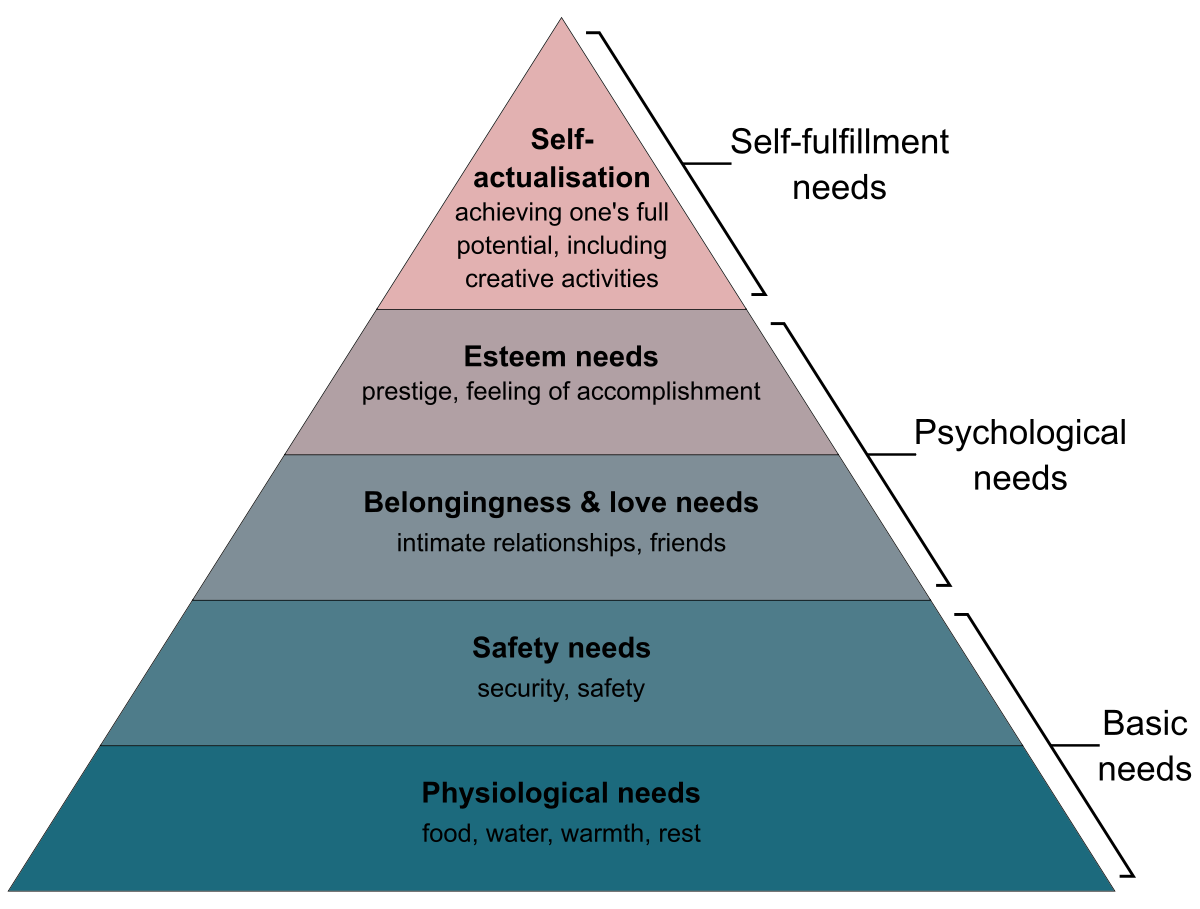The theory of human needs of Maslow, founder and main representative of humanistic psychology, is based on the existence of a series of needs that affect all individuals and are organized from the most urgent to the least urgent.
According to Maslow, our actions arise from a motivation oriented to the objective of meeting certain needs, which are organized according to the importance they have in our well-being.
- The graphical representation of this hierarchy of needs is done through a pyramid.
- So this theory is also known as maslow pyramid.
At the bottom of the structure are the most vital and priority needs for biological survival, while at the top are the least urgent and related to self-realization.
Thus, when the needs of the lower levels are met, the individual does not become indifferent, but finds in the higher states the next goal to be achieved in order to be satisfied.
Consumer society has brought about profound cultural changes, which have changed the content, terms and concepts of human natural desires. Today, contrary to the theory of human needs, it seems that we only care about having, accumulating goods and services.
On the other hand, the most existential dimensions have lost their validity, as well as the values that were, in the past, the basis of social relations and the cornerstone of different cultures, so it is now necessary to review and reclassify the notion of necessity.
“True social progress is not about increasing needs, but about reducing them voluntarily; However, is that why you have to be humble?Mahatma Gandhi?
Maslow’s theory of human needs formulates a hierarchical structure that argues that when the most basic needs are met, humans develop higher desires, these objectives are divided into five levels:
“You can’t escape the needs, but you can overcome them. “
The World Health Organization (WHO) defines mental health as “a state of complete physical, mental and social well-being,” not just the absence of conditions or illnesses.
Psychological well-being encompasses our highest needs as a set of sensations that refer to how we judge our lives in the world.
These needs are not necessarily related to the experience of pleasurable situations or the satisfaction of personal desires, but to a much broader set of dimensions.
Among the most important psychological needs of the human being, we find the need for affection and love, the need for property and the need for recognition.
The greatest psychological need of the human being lies in self-realization; it is thanks to your satisfaction that we find a valid purpose or meaning for life.
“Will you move forward to grow or retreat because of insecurity?”? Abraham Maslow?
Although many research and studies support Maslow’s theory of human needs, there are many others that do not seem to follow the same line and have criticized this model.
In fact, some studies say that while the most basic needs are not met, those related to development and personal recognition are also important.
Regardless of the criticism received, Maslow’s theory of human needs is a fundamental addition to psychology, which has contributed to the establishment and development of humanist psychology and the concept of the common good.

